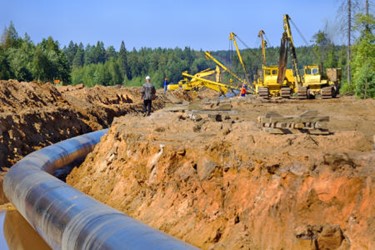Clean Water Act May Change To Limit State Oversight


Since 1972, the Clean Water Act has served as the cornerstone federal regulation governing water pollution in the United States. And now, the U.S. EPA has proposed that significant changes be made to it in order to ease processes for construction projects.
“The Environmental Protection Agency is proposing a change in Clean Water Act regulations aimed at streamlining the approval process for permits that are often a sticking point for pipelines and other major infrastructure projects,” The Wall Street Journal reported. “The proposed regulatory change is aimed at bolstering federal authority in granting these permits and at preventing states from overstepping their authority, EPA Administrator Andrew Wheeler said in an interview.”
The EPA pushed the proposal forward earlier this month, initiating a 60-day public comment period. Specifically, the changes would put a stricter one-year deadline on state’s permitting authority and would require states to reference water-quality issues only when they reject permits.
Wheeler has argued that, as it stands now, states leverage the Clean Water Act to hold up pipeline projects that should be moving forward. In this way, the changes seem connected to a larger emphasis on cutting red tape and environmental protections that stand in the way of the energy industry throughout the Trump administration.
“President Trump has promised to streamline government reviews and speed up energy projects,” per the Journal. “Interstate pipeline projects, in particular, have faced delays, with new lines to take natural gas to coastal consumers stalled for years under court and regulatory challenges.”
On the other hand, environmental groups have raised concerns that changes to the Clean Water Act could recklessly endanger the natural resources it was meant to protect.
Per Inside Climate News, Matthew Gravatt, deputy legislative director for the Sierra Club said the changes “would limit states’ authority to protect their waterways from effects such as erosion and sedimentation by restricting their permit decisions to only considering the potential for discharges into the water from a point source,” according to Inside Climate News.
If and when the proposed changes are adopted into the rule, states will have to be more clear and concise about why they object to permits under the Clean Water Act.
To read more about the rules that affect water and wastewater utilities, visit Water Online’s Regulations And Legislation Solutions Center.
